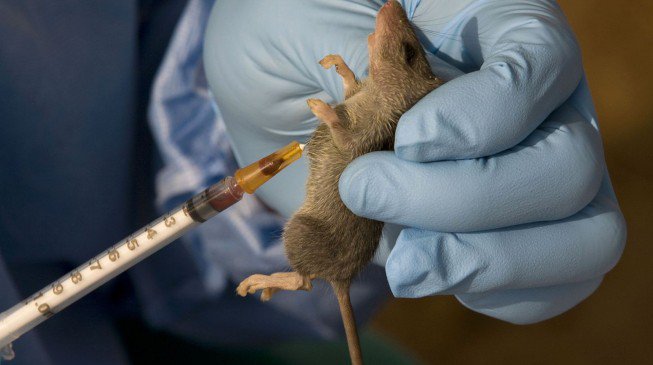
Two medical practitioners on Friday in Lagos urged the public to be vigilant and imbibe the right attitude toward the prevention of Lassa fever.
The experts, Dr Bamidele Mutiu, a Consultant Microbiologist, Lagos State University Teaching Hospital (LASUTH), Ikeja, and Dr Sylvester Osinowo, a Family Physician, spoke in separate interviews with the News Agency of Nigeria (NAN). NAN reports that the Chief Medical Director, Lagos University Teaching Hospital (LUTH), Idi-Araba, Lagos, Prof. Chris Bode, had on Aug. 8 confirmed that two patients died of Lassa fever at the hospital.
Bode, confirming the reports, also said that no fewer than 100 health workers exposed to the index cases were currently being monitored.
According to Mutiu, apart from educating people through radio jingles and other media, people need to have behavioural change toward improving their level of hygiene.
“You can listen to the jingles as many times as possible and never change your attitude; attitude need to be improved and level of hygiene also need to be improved on.
“Also, people should have zero tolerance for rats. People have seen it as normal to have rodents in the house, which should not be.
“Do not make your house conducive for rats to live by making sure that you clear bushes around your surroundings.
“People need to realise that Lassa fever can affect anyone and even the way we store our foods in the market, at home and during processing should be improved, “ he said.
The consultant microbiologist also urged the government to upgrade the diagnostic facilities in the country.
He said: “There are only two World Health Organisation (WHO) accredited laboratories for diagnosis.
“Generally, people need to be careful and revive the things we did during the Ebola virus outbreak, including regular handwashing.“
Also, Osinowo, a family physician at a Lagos-based private hospital, Amazing Grace, said: “We have to reintroduce a system where sanitary inspectors will be going round locations and neighbourhood to enforce sanitation.
“Prevention is usually cheaper than treatment and so, government can prevent the spread of the disease by ensuring that people are made to clean their environments, it will help us to prevent its spread. “
Meanwhile, the Lagos State Government had said it was carrying out contact tracing to determine those who might have been infected with the Lassa virus.
Dr Olufemi Onanuga, the Special Adviser to Gov. Akinwumi Ambode of Lagos State on Primary Healthcare, said on Wednesday that isolation centres had been prepared to manage suspected and confirmed cases.
Onanuga said that drugs and other materials had also been prepositioned at some designated facilities.
He urged the public to ensure and maintain adequate personal and environmental hygiene at all times as part of the precautionary measures to prevent the spread of the disease in the state.
“Avoid contact with rats, always cover your food and water properly, cook all food thoroughly, as well as block all hideouts and holes through which rats can enter the house.
“Health workers are also advised to ensure that they take universal safety precautions when dealing with patients.
“The need for appropriate personal protective clothing like hand gloves, facemasks, goggles and overall must be worn when attending to cases, “ Onanuga said.
The LUTH Chief Medical Director had said that no fewer than 100 health workers exposed to the index cases were currently being monitored.
“Each of the two patients that died of Lassa fever presented very late and died in spite of efforts to salvage them.
“The first was a 39-year old pregnant lady with bleeding disorder who died after a stillbirth.”
“A post-mortem examination had been conducted before her Lassa fever status was eventually suspected and confirmed,’’ Bode said.
He also confirmed that a resident doctor from the Department of Anatomic and Molecular Pathology, who took part in the autopsy, was later confirmed with the disease.
Bode said: “There is no panic; the Lassa fever disease is being contained and all the stakeholders are working hard to make sure that it doesn’t spread.
“However, we should all be involved collectively and individually to stop further spread of this disease.
“I urge us to prevent our food items from being contaminated by rats and rat droppings and urine.
“Do not spread your food outside in the open; put food items in rat proof containers so that rats will not get access to the food.’’







